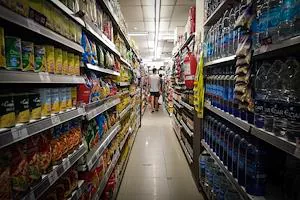Law Governing Supermarket Shelves Now Also Applies to Supermarket Websites
The Secretariat of Domestic Trade now regulates how supermarkets, stores, self-service shops, and other businesses are to display products on their websites.

The Argentine Secretariat of Domestic Trade handed down Resolution SCI 926/2021 regulating how certain businesses with points of sale have to display three categories of products by November 9, 2021. The resolution’s stated purpose is to ensure that some of the goals in Supermarket Shelf Law No. 27,545, which we have commented on here, can be achieved.
For some time now, market studies have shed light on how best to display products based on average consumer behaviors, preferences, and decision-making. These studies even include some objective elements, such as inventory and product rotation. But market practices will now be trumped by statutory criteria aimed at complementing percentual restrictions to product displays pursuant to article 7 of the Supermarket Shelf Law.
This resolution sets default product display standards in online shelves based on consumer needs and accessibility. Under the resolution, essential goods must be displayed from cheapest to most expensive. In addition, legends aimed at directing consumers toward national or cheaper products are required. Other criteria may apply when displaying products, but the default option made available to consumers to click on must be the one established under the resolution. This default requirement will be deemed met if one or more buttons are added to websites that clearly and unequivocally follow statutory product display criteria.
This regulation applies to supermarkets, superstores, food and non-food self-service retailers, minor business chains, major supplier organizations, perishable product retailers, and typifiers-packers for shopping centers who work directly or indirectly online and cannot be classified under existing billing standards as micro, small, and medium-sized enterprises (“mipymes,” after their acronym in Spanish). In principle, this policy does not apply to the websites of non-bound parties who market products governed by the statute.
Governed parties are subject to three obligations:
(i) First-Reached Products
Dairy and refrigerated products (except for meats, fish, and shellfish), frozen foods, fruits and vegetables, warehouse products (except for unbranded homemade products), non-alcoholic and alcoholic drinks, perfumery, cleaning products, pet food and accessories have to be displayed on the front page of websites and ordered from cheapest to most expensive by price per unit. In addition, no highlighting or promotional labeling can be added.
Direct product searches on online platforms are not governed by the resolution. In our view, however, there is no need to obstruct consumer searches by accessing a page full of products they have no intention of buying.
(ii) Cheaper Products
Products deemed by the Secretariat of Domestic Trade as essential to the basic food basket have to include a legend that reads “LOWEST PRICE per measured unit. Law No. 27,545” in Spanish. “Lowest price” products are those that are offered to end consumers at the lowest listed price per unit of measurement. If a consumer opts out of the default search criterion, the legend is supposed to help that consumer easily identify the cheapest product.
(iii) National Products
National products made by micro and small businesses, agricultural family-owned businesses, agricultural workers and indigenous peoples, grassroots workers, cooperatives and mutual partnerships must include the legend “BUY MIPYME” in Spanish.
Suppliers who know and understand their businesses are mindful of their market and know how important it is to have an adequate layout on their websites based on consumer preferences and former experiences. This is particularly useful in competitive markets, in which vendors are constantly trying to stand out and expand their brands. But starting November 9, 2021, it will be up to suppliers to find other ways to compete online.
We believe this resolution may restrict consumer discretion in how products will be displayed on every website. Behavioral economics experts have documented evidence that this default plays a major role in consumer product choices. But the resolution’s recitals cite no market study that could justify this intervention. This weakens the measure’s effectiveness. And it’s quite possible that this measure could hinder trade flows and force consumers to have to pay even higher product prices.
This insight is a brief comment on legal news in Argentina; it does not purport to be an exhaustive analysis or to provide legal advice.